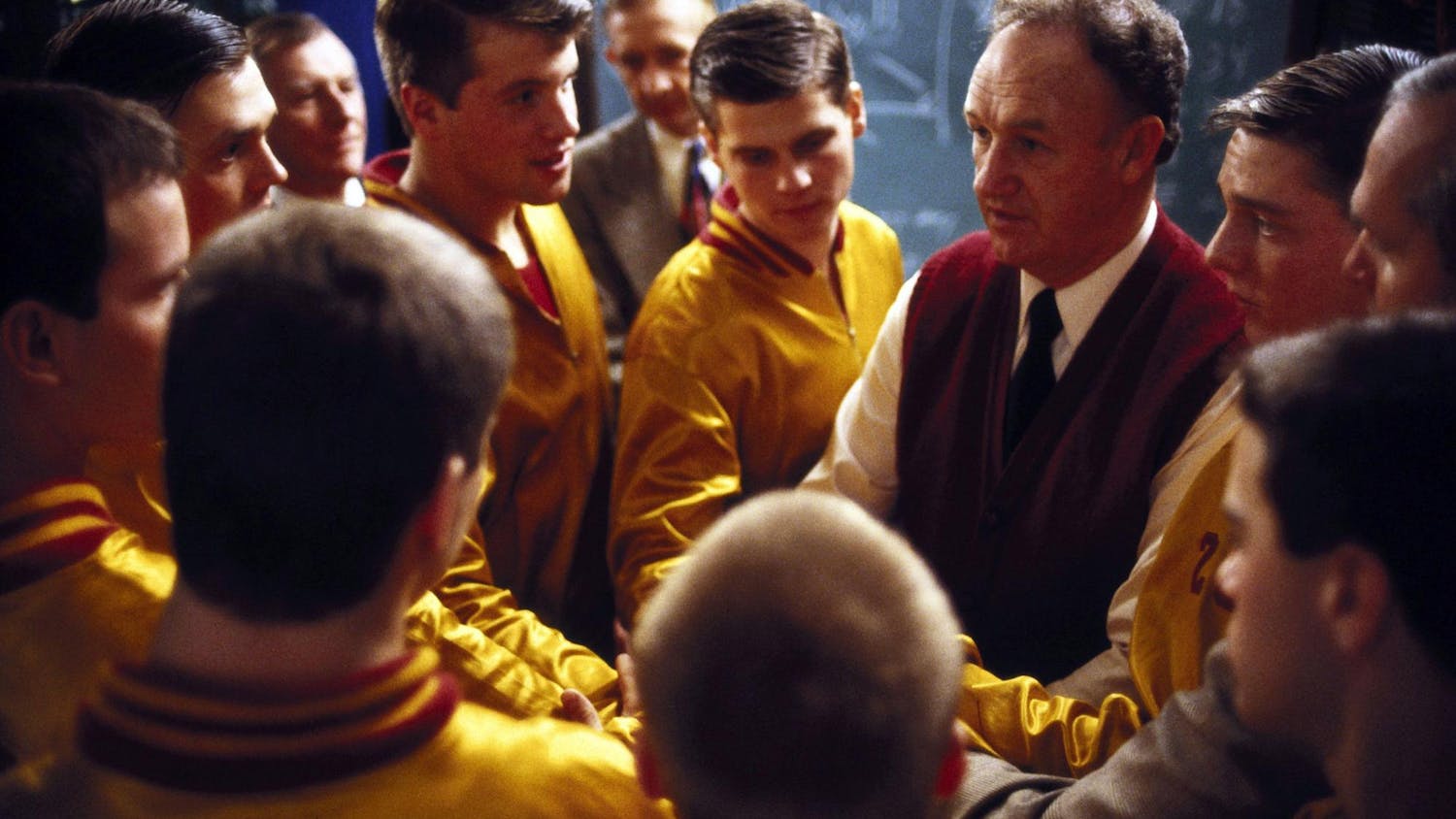Ten years later, IU CommUNITY Educators, referred to as CUEs, senior Reshma Patel and junior Cody Vaughn are trying to bring attention to the societal pressures that can influence costume selections on Halloween through discussion with their ?residents.
“Why do girls try to dress slutty on Halloween?” Vaughn asked. “And why can’t you dress slutty on other days?”
On Tuesday evening, the two held a reactionary program in both Union Street Center and the Willkie Residence Center that included surveying students passing and asking whether or not they felt any pressure to dress a certain way on Halloween because of their gender identity.
Students answered on a large chart by placing a ‘yes’ or ‘no’ sticker under the gender with which they identify.
The chart included male, female and non-binary options.
By the end of the night, the CUE’s chart had one sticker in the male ‘yes’ column, seven stickers in the male ‘no’ column, eleven stickers in the female ‘yes’ column, five stickers in the female ‘no’ column and one non-binary ‘yes’ sticker.
While students could only vote as the gender with which they identify, Patel and Vaughn followed up by asking them to answer for the other gender.
“We’ll have a conversation based on their choices, asking them to elaborate on why they feel a certain way,” Patel said.
Patel and Vaughn said the general consensus is that women feel more pressure than men to dress a certain way.
“Even the girls who answered ‘no’ mostly said they acknowledge that a pressure exists,” Patel said. “They just don’t follow it.”
Patel and Vaughn said the purpose of the program is to get students to critically analyze societal messages and how they affect daily life.
“We meet them at whatever mindset or belief system they’re at and try to push them a little further to plant a seed or get them to think of things a little more under the surface,” Patel said.
Patel said she asked a male student who said he didn’t think women felt any pressure in their costume choices to reflect on the selection in costume stores.
“We asked him to think about if he wanted to be Wonder Woman for Halloween and went to a store and only found skimpy choices but didn’t necessarily want to dress skimpy,” Patel said. “Do you have a choice? Do you change what you want to be? Or, do you just go with it?”
For students who already recognize the presence of societal pressures when it comes to Halloween costumes, Vaughn said he and Patel try to get them to draw broader ?conclusions.
“We try to link it to if it’s a part of a larger gender issue of denying women agency or trying to keep women in certain parameters,” he said.
Patel said she conducted the same program last year in the Teter Residence Center and said she noticed a difference between the reactions she received from the mainly freshman population at Teter and the upperclassman students living in Union Street and Willkie.
“A lot more older students recognize the societal pressure that people who identify as women probably face,” she said. “They just have more experience.”
Patel said she had to do a lot more explaining of her idea to students, especially the young men she spoke to, before they had “eureka moments of understanding.”
Still, Patel said there is value in reemphasizing the concepts of societal pressures to older students just as much as there is value in discussing it with younger students.
“Just because people understand it doesn’t mean they’re thinking about it,” she said.
Patel said college in general is a huge place to observe societal pressures affecting decisions such as Halloween costumes.
“People at this age are really malleable and don’t realize how pressures are internalized,” she said.





